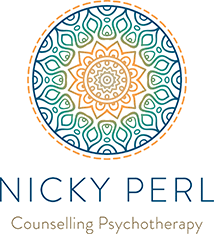Q. How do I get started?
I appreciate that it’s not easy to know how to get started and I am open to being contacted in different ways. You can use the contact form in the 'contact me' section of this website and arrange a face to face meeting or feel free to call me for an initial chat before we set this meeting up.
Once we meet, we can talk more about what brings you to therapy at this moment in time and we can discuss any questions or concerns you may have. I can also explain about my approach and how I work. If you do decide that you’d like to carry on working with me, we would review the work on a regular basis as it is important not to drift but to make sure that you are still getting what you need out of the sessions.
Please use the contact form to arrange an initial consultation.
Q. Will I need short term or open ended (long term) therapy?
A specific issue within a defined time line (eg bereavement, job loss) can lend itself to short term therapy whereas more complex problems that are embedded in deeper held beliefs and attitudes may require longer to deal with. Again, this is something that we can discuss in depth during the initial consultation as it is important for me to understand more about your issues and your goals from therapy.
Q. What’s the difference between counselling and psychotherapy?
There is no easy answer to this one! It’s fair to say that those working in the field have widely differing views. Both are ‘talking therapies’ – sharing problems in a confidential, safe and supportive environment with someone who is trained.
Whilst I practice both, counselling is often used to help people to identify specific issues and is a shorter term process that encourages a change in behaviour. Psychotherapy covers this too but tends to work at a deeper level and is a longer term process that identifies emotional and relational behaviours and patterns that underpin problems and difficulties.
Q. How is talking to a therapist different from talking to a friend?
Friends and family can be an important source of support and care during difficult times. Apart from the issue of confidentiality, loved ones can often be quite embedded in one's life and as a result may feel the need to offer advice or feedback. This can feel frustrating. The experience of working with a therapist is different. Therapists are more objective and trained, the focus is on you and your needs and how you can work together to understand any barriers and prompts to personal growth.
Q. Does therapy work?
This is a very valid question and one that I have pondered on during my training. As valid as this question is, it is hard to find a straightforward evidence based answer, even when exploring the research on this subject.
In my experience of working with clients in private practice, within the NHS and on my various placements, therapy can achieve incredible results but is only one step towards mental health well being.
Therapy requires work and commitment, on both the client's and therapist’s side. It needs patience and time, like any developing relationship and there are reasons why some therapists and clients cannot rise to the challenge.
Regardless of the answer, it is an important question and kept in mind for the duration of the work. Perhaps a better question or evaluation point is 'how can we keep therapy working' for you.
Q. Can you tell me more about the logistics, including price?
I work in Finchley, North West London on Mondays (see contact section) at a modern, bright and welcoming therapy practice called Aashna. The rest of the week, I work from my garden room in NW11
Sessions are 50 minutes (individual) and 60 minutes (couples) and take place weekly, ideally at the same time and on the same day.
I charge £120 for individual sessions (50 mins) and £160 for couples therapy. (60 - 90 minutes) I offer a limited number of low cost places to individuals who are unemployed or in financial difficulty.
